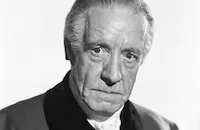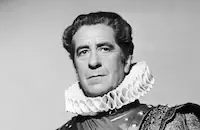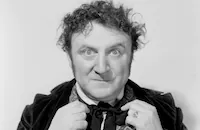Unashamed

Brief Synopsis
Cast & Crew
Harry Beaumont
Helen Twelvetrees
Robert Young
Lewis Stone
Jean Hersholt
John Miljan
Film Details
Technical Specs

Synopsis
Joan Ogden is in love with Harry Swift, a gambler and polo player, who is not in the same social class as Joan's family. Her brother Dick, who, though younger than Joan, is very protective of her, doesn't want her to associate with Harry. Joan's father, who has lovingly reared Joan since his wife's death, warns her to keep away from Harry because "he's no good," but Joan is too much in love to give him up. When delicatessen owner Heinrich Schmidt goes to visit Mr. Ogden a few days later, Ogden is startled to learn that Schmidt is Harry's father. Schmidt wants Joan to stop seeing his son, whose real name is August Schmidt, so that he will go back to live with his father in their old neighborhood and forget about his acquired taste for luxury. Despite Mr. Schmidt's plea, Joan remains adamant about Harry. Later, Harry goes to see his father to ask for two thousand dollars so he can open an office. Although Schmidt is financially successful, he refuses to give Harry any more money. After they quarrel and make up, however, Schmidt agrees. The next night, Harry goes to see Ogden and shows him the money, pretending that he has made it from business deals. Ogden still is unimpressed, however, and tells him not to see Joan any more. A short time later, Joan and Harry check into a hotel and spend the night together. The next morning, Harry tells Joan that her father will insist that they marry to save her reputation, and that the three million dollars she is due to inherit will soon be theirs. He also tells her that he may have to put on an act in front of her family, but no matter what happens, he loves her. Meanwhile, at the Ogden house, Dick is nearly hysterical when he discovers that Joan has been out all night. Though his father is certain everything is all right, Dick goes looking for her. While he is out, Joan and Harry arrive and tell Ogden what has happened. Instead of insisting on their marriage, however, he tells Joan that he will not let her make another mistake and that they will keep things quiet. Dick then comes home and confronts Harry, with whom he has a violent argument when Harry says that he will tell everyone that Joan spent the night with him. During the argument, Dick goes to get a gun and when he returns, he shoots Harry. After Dick's arrest, his attorney, Henry Trask, wants to use the "unwritten law" defense, but Dick refuses to allow Joan to be humiliated in court. Joan, who now blames both Dick and her father for Harry's death, coldly refuses to help. During the trial, District Attorney Harris warns the all-male jury that there is no such thing as the unwritten law, and evidence seems to point to pre-meditated murder. When Joan is on the witness stand, she testifies that Dick shot Harry, "for no reason at all," after which Dick tells her whatever she has done, he still loves her. That night, Trask goes to Joan and describes what will happen if Dick is convicted and sent to the electric chair. Despite his words, she will not help Dick until she reads about executions in the newspaper. Remorseful, she then goes to Trask to beg him to let her help. He warns her that by saving Dick she may ruin herself for life, but she says she must do whatever is necessary. On the stand, Joan pretends to be callous and ammoral and makes the jury believe that Dick was merely punishing a man who had degraded his sister. When she leaves the stand, people in the courtroom shout insults at her, and the jury acquits Dick. Finally, Trask explains to Ogden and Dick that through Joan's sacrifice, Dick can go free, and the Ogdens are a family again.

Director

Harry Beaumont
Cast
Helen Twelvetrees

Robert Young

Lewis Stone

Jean Hersholt

John Miljan

Monroe Owsley

Robert Warwick
Gertrude Michael
Wilfred North
Tommy Jackson

Louise Beaver
Rolfe Sedan

Herman Bing
Robert Dudley
Crew

Film Details
Technical Specs

Articles
Unashamed
By Richard Harland Smith

Unashamed
Quotes
Trivia
Notes
Working titles of the film were Compromised and Without Shame. According to Variety, actress Helen Twelvetrees was borrowed from RKO for this picture. The Hollywood Reporter review notes that the film was based on an actual murder case, however, no details of the real case have been located.














